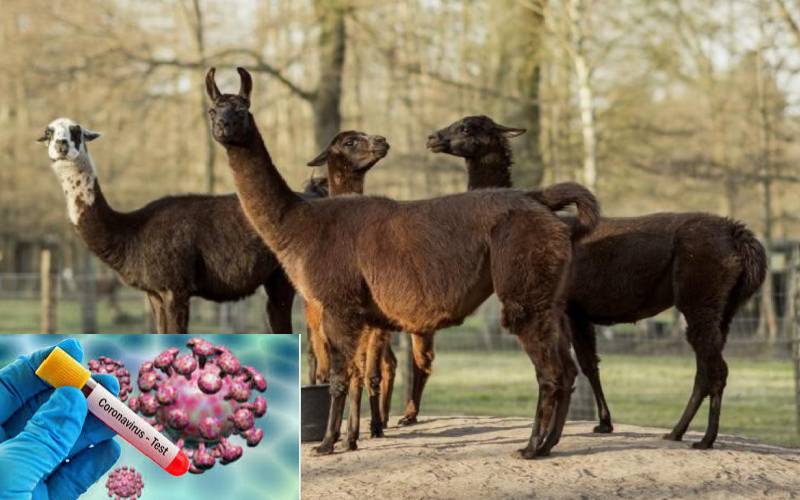
Llama antibodies could neutralise the novel coronavirus, research suggests. [Courtesy]
A llama could prove key in the hunt for a treatment for Covid-19, say experts.
US and Belgian scientists have identified a tiny particle that appears to block coronavirus, with a llama called Winter central to their studies.
A team from Belgium’s VIB-UGent centre for medical biotechnology and the University of Texas at Austin published their research on Tuesday in the journal Cell.
They began four years ago looking into antibodies that might counter the SARS virus, which spread in 2003, and the 2012 MERS virus.
“The work was a side project in 2016, we thought maybe this was interesting,” said Xavier Saelens, joint leader of the Belgian part of the collaboration.
“Then the new virus came and it became potentially more crucial, more important.”
Winter, the llama, was given safe versions of the SARS and MERS viruses and samples of its blood were later taken.
Llamas and other members of camel family are distinct in creating standard antibodies and smaller antibodies, with which scientists can more easily work.
The Belgian part of the research team, also led by Bert Schepens, identified fragments of the smaller antibodies, known as nanobodies, to see which bound most strongly to the virus.
Mr Saelens describes the new coronavirus as the cousin of the SARS virus.
Both have a corona, or crown, shape with protein spikes, onto which an antibody can latch.
The team intend to begin tests on animals with a view to allowing trials with humans to begin by the end of the year.
Jason McLellan, associate professor of molecular biosciences at UT Austin and co-senior author, said the potential treatment would be able to more quickly protect people, reports Sky News.
"Vaccines have to be given a month or two before infection to provide protection," he said.
"With antibody therapies, you're directly giving somebody the protective antibodies and so, immediately after treatment, they should be protected."
This may prove vital in protecting frontline healthcare workers.
 The Standard Group Plc is a multi-media organization with investments in media
platforms spanning newspaper print
operations, television, radio broadcasting, digital and online services. The
Standard Group is recognized as a
leading multi-media house in Kenya with a key influence in matters of national
and international interest.
The Standard Group Plc is a multi-media organization with investments in media
platforms spanning newspaper print
operations, television, radio broadcasting, digital and online services. The
Standard Group is recognized as a
leading multi-media house in Kenya with a key influence in matters of national
and international interest.











